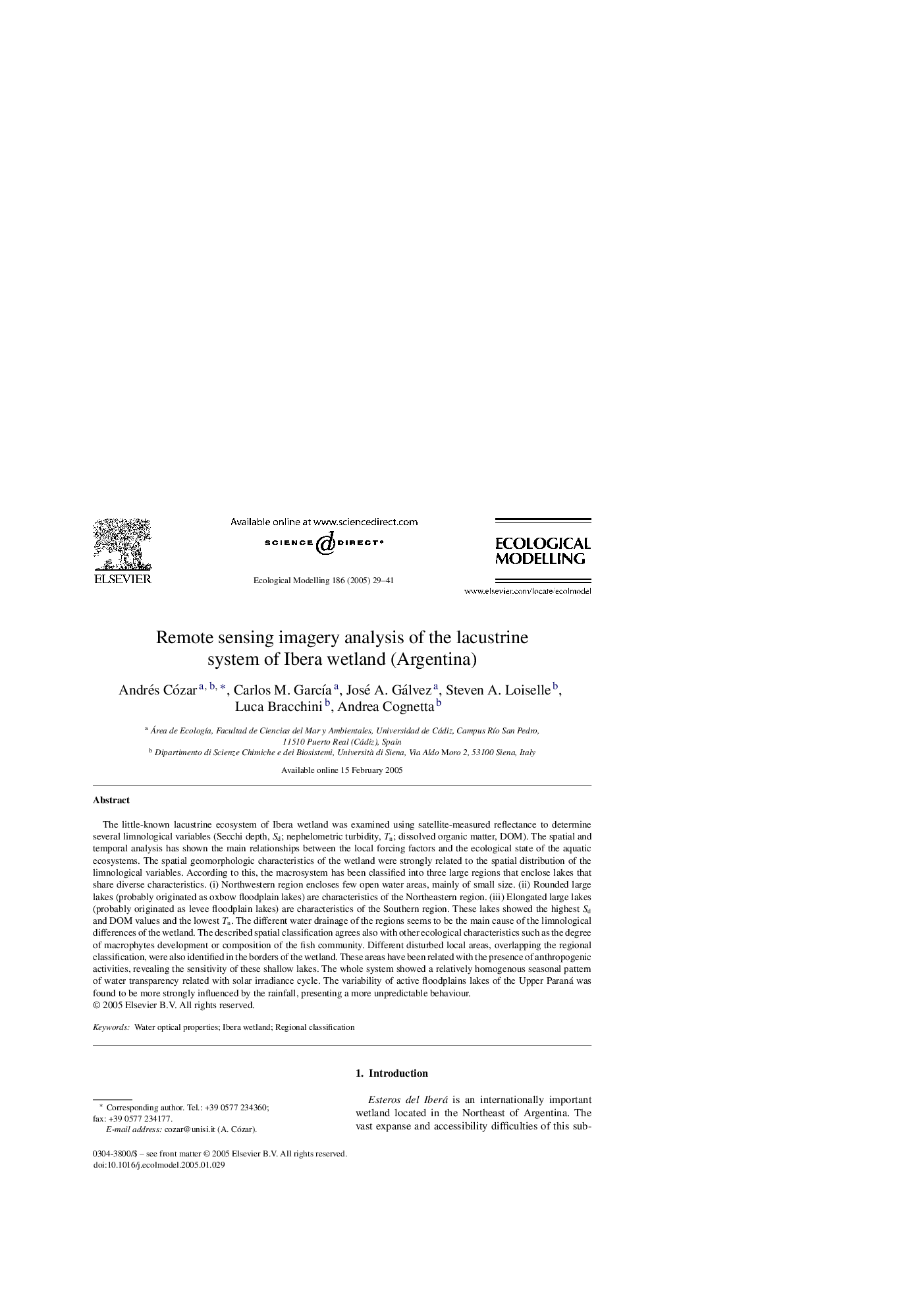| Article ID | Journal | Published Year | Pages | File Type |
|---|---|---|---|---|
| 9443361 | Ecological Modelling | 2005 | 13 Pages |
Abstract
The little-known lacustrine ecosystem of Ibera wetland was examined using satellite-measured reflectance to determine several limnological variables (Secchi depth, Sd; nephelometric turbidity, Tn; dissolved organic matter, DOM). The spatial and temporal analysis has shown the main relationships between the local forcing factors and the ecological state of the aquatic ecosystems. The spatial geomorphologic characteristics of the wetland were strongly related to the spatial distribution of the limnological variables. According to this, the macrosystem has been classified into three large regions that enclose lakes that share diverse characteristics. (i) Northwestern region encloses few open water areas, mainly of small size. (ii) Rounded large lakes (probably originated as oxbow floodplain lakes) are characteristics of the Northeastern region. (iii) Elongated large lakes (probably originated as levee floodplain lakes) are characteristics of the Southern region. These lakes showed the highest Sd and DOM values and the lowest Tn. The different water drainage of the regions seems to be the main cause of the limnological differences of the wetland. The described spatial classification agrees also with other ecological characteristics such as the degree of macrophytes development or composition of the fish community. Different disturbed local areas, overlapping the regional classification, were also identified in the borders of the wetland. These areas have been related with the presence of anthropogenic activities, revealing the sensitivity of these shallow lakes. The whole system showed a relatively homogenous seasonal pattern of water transparency related with solar irradiance cycle. The variability of active floodplains lakes of the Upper Paraná was found to be more strongly influenced by the rainfall, presenting a more unpredictable behaviour.
Related Topics
Life Sciences
Agricultural and Biological Sciences
Ecology, Evolution, Behavior and Systematics
Authors
Andrés Cózar, Carlos M. GarcÃa, José A. Gálvez, Steven A. Loiselle, Luca Bracchini, Andrea Cognetta,
